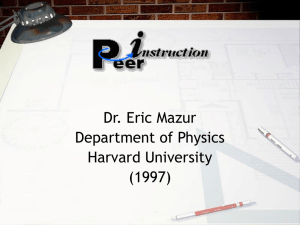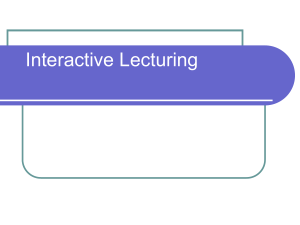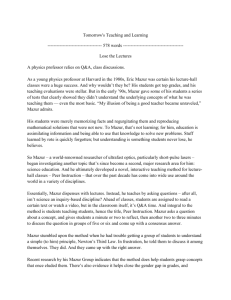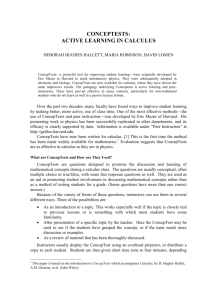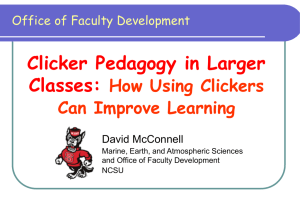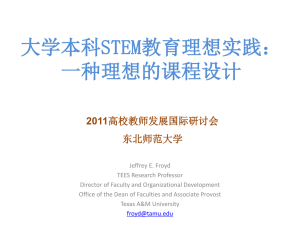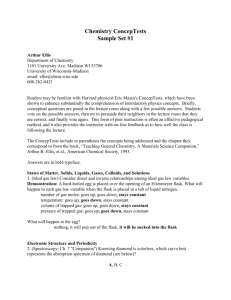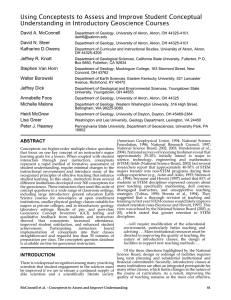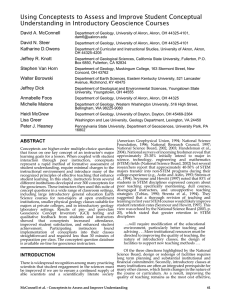ConcepTests for science and math classes
advertisement
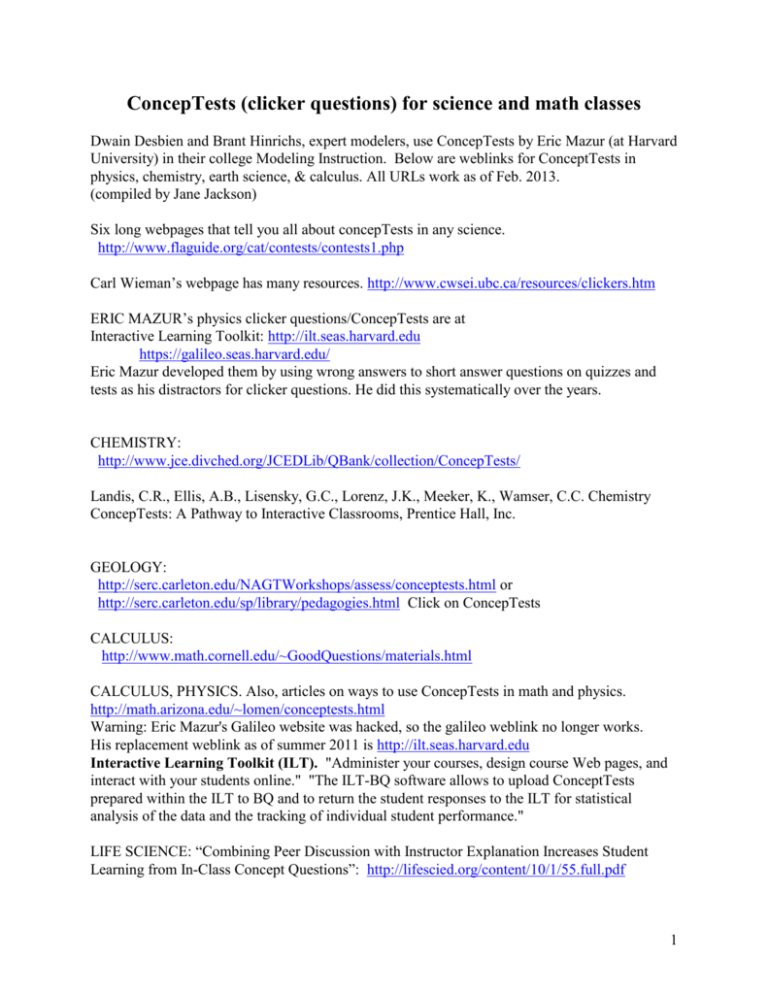
ConcepTests (clicker questions) for science and math classes Dwain Desbien and Brant Hinrichs, expert modelers, use ConcepTests by Eric Mazur (at Harvard University) in their college Modeling Instruction. Below are weblinks for ConceptTests in physics, chemistry, earth science, & calculus. All URLs work as of Feb. 2013. (compiled by Jane Jackson) Six long webpages that tell you all about concepTests in any science. http://www.flaguide.org/cat/contests/contests1.php Carl Wieman’s webpage has many resources. http://www.cwsei.ubc.ca/resources/clickers.htm ERIC MAZUR’s physics clicker questions/ConcepTests are at Interactive Learning Toolkit: http://ilt.seas.harvard.edu https://galileo.seas.harvard.edu/ Eric Mazur developed them by using wrong answers to short answer questions on quizzes and tests as his distractors for clicker questions. He did this systematically over the years. CHEMISTRY: http://www.jce.divched.org/JCEDLib/QBank/collection/ConcepTests/ Landis, C.R., Ellis, A.B., Lisensky, G.C., Lorenz, J.K., Meeker, K., Wamser, C.C. Chemistry ConcepTests: A Pathway to Interactive Classrooms, Prentice Hall, Inc. GEOLOGY: http://serc.carleton.edu/NAGTWorkshops/assess/conceptests.html or http://serc.carleton.edu/sp/library/pedagogies.html Click on ConcepTests CALCULUS: http://www.math.cornell.edu/~GoodQuestions/materials.html CALCULUS, PHYSICS. Also, articles on ways to use ConcepTests in math and physics. http://math.arizona.edu/~lomen/conceptests.html Warning: Eric Mazur's Galileo website was hacked, so the galileo weblink no longer works. His replacement weblink as of summer 2011 is http://ilt.seas.harvard.edu Interactive Learning Toolkit (ILT). "Administer your courses, design course Web pages, and interact with your students online." "The ILT-BQ software allows to upload ConceptTests prepared within the ILT to BQ and to return the student responses to the ILT for statistical analysis of the data and the tracking of individual student performance." LIFE SCIENCE: “Combining Peer Discussion with Instructor Explanation Increases Student Learning from In-Class Concept Questions”: http://lifescied.org/content/10/1/55.full.pdf 1 PHYSICS (by Paul Hewitt. Eric Mazur borrowed some of Paul Hewitt's questions.) http://www.arborsci.com/ConceptualPhysics/default.aspx You can also download many Next Time Questions by Paul Hewitt at http://www.arborsci.com/Labs/CP_NTQ.aspx I quote Paul Hewitt: Next-Time Questions are favorite insightful questions I have asked my students over my teaching career. I have embellished them with cartoons "to catch interest. Their intention is to elicit student thinking. My use of them was posting several in a glass case outside my lecture hall-without answers. The wait-time for answers was one week. I could have called them NextWeek Questions, which would have been more appropriate. Most of these have been published over the years as Figuring Physics in The Physics Teacher magazine. They have also been in ancillaries to my Conceptual Physics textbooks, and physical science textbooks as well. My hope is that teachers will pose the questions, and withhold answers to "next time," which could be as early as the next class meeting. Their educational value is the long wait time!" Thanks to modeler Geoff Schmit for posting comments about these, in his blogpost on Sept. 26, 2011: http://pedagoguepadawan.net/date/2011/09/ For a deeper understanding: * Peer Instruction Network is the global community for current and future users of Peer Instruction and related interactive teaching methods. By joining, you can Connect with other innovative educators, Share experiences and resources, and Learn how to transform teaching and learning using research-based methods. Info & sign in are at https://www.peerinstruction.net/ Or read about it at http://blog.peerinstruction.net/ * Peer Instruction is a research-based, interactive teaching method developed by Eric Mazur at Harvard University in the 1990s. It has been adopted across the disciplines, institutional types, and throughout the world. Download papers on peer instruction on Eric Mazur's website: http://mazur.harvard.edu * Learning Catalytics is a classroom response system that was developed by Eric Mazur and his colleague by 2011 to better facilitate and measure learner engagement. Read about it at http://mazur.harvard.edu/publications.php?function=display&rowid=701 Get a free instructor’s copy at http://learningcatalytics.com 2
